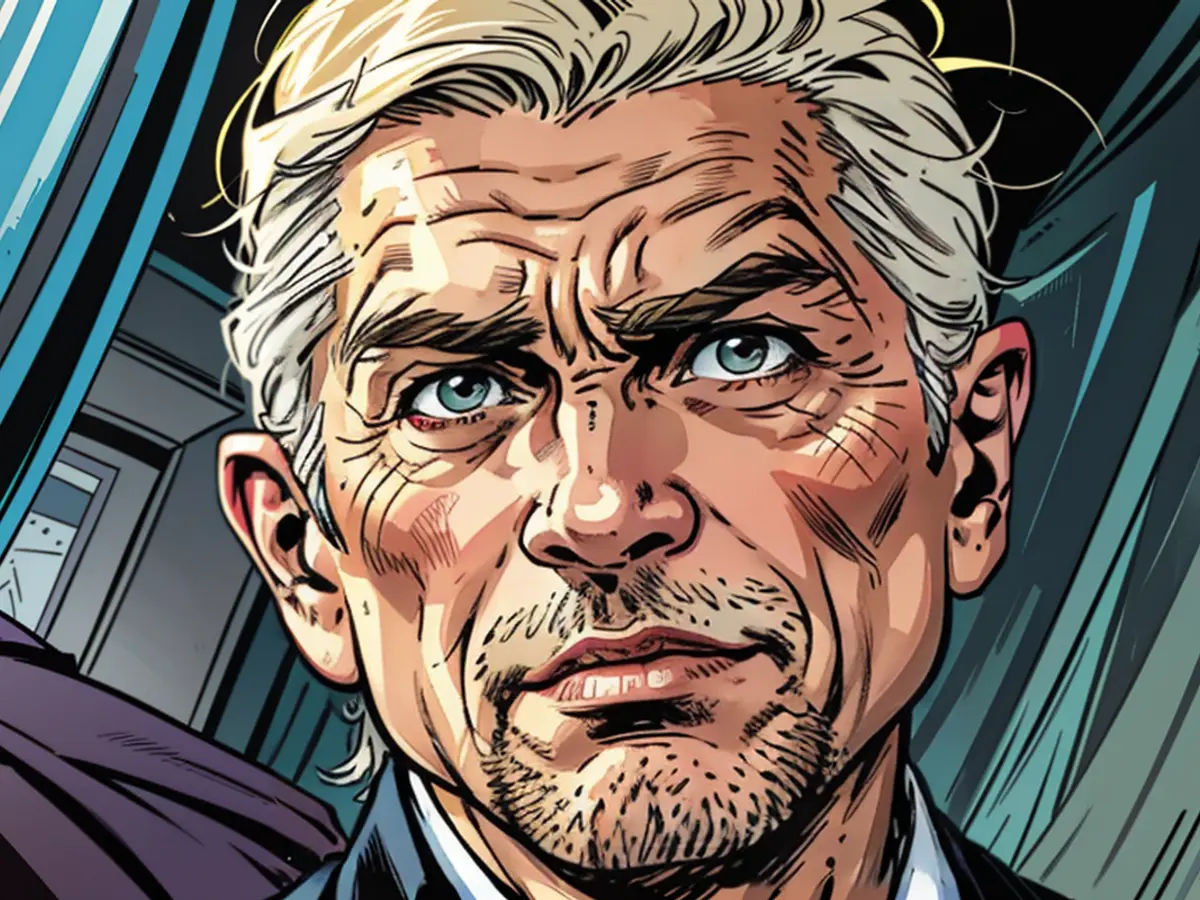Conversations with Putin and Xi - Budapest in Brussels: EU argues over reaction to Orban journey
The question of a possible retaliatory action for unsanctioned trips of Hungary's Prime Minister Viktor Orban to Russia and China has caused a rift in the EU. At an external affairs minister meeting in Brussels on Monday, a series of participants spoke out against a proposal by EU chief diplomat Josep Borrell to boycott a meeting that the current Hungarian EU presidency is organizing at the end of August in Budapest.
The problem now lies with Borrell, who is responsible for invitations to EU foreign minister meetings. If he does not organize the semi-annual gathering in Budapest, there is a risk that critical ministers will boycott this meeting. If he reluctantly invites to Budapest, the Hungarians win. Many are frustrated with this, especially since Hungary, with its peace mission diplomacy initiative, stands almost completely isolated. No one supported this in Brussels, they said.
Large EU countries against boycott
Luxembourg's Foreign Minister Xavier Bettel was the most vocal in criticizing the boycott considerations on Monday. He spoke of folly and advocated for traveling to Budapest and clearly and openly expressing his opinion to the Hungarian government. Spain and Slovenia also expressed clear opposition to Borrell's proposal.
Behind the scenes, according to diplomatic sources, German Foreign Minister Annalena Baerbock and representatives from countries like France and Italy expressed similar views. On the other hand, countries from Northeastern Europe, such as Poland, Lithuania, and Sweden, had already announced earlier that they would not send their ministers and ministers for meetings to Hungary.
Discussion has been ongoing for days
Discussions about possible reactions of the EU to Orban's meetings with Russian President Vladimir Putin, Chinese State and Party Chief Xi Jinping, and former US President Donald Trump have been ongoing for days. These trips are particularly controversial because Hungary currently holds the rotating EU presidency. It is feared that abroad, the impression will be created that Orban speaks in the name of the European Union at these meetings.
Orban speaks of a "peace mission"
Borrell called Orban's actions at the foreign minister meeting "unacceptable" and also included statements from his foreign minister Peter Szijjarto in his criticism. Szijjarto recently gave the impression in a UN Security Council speech that the EU is fueling the war in Ukraine through its politics and arms deliveries.
Orban speaks of a "peace mission." The Hungarian has long held the view that the political course of the EU and NATO could lead to an expansion of the war beyond Ukraine. However, from the Ukrainian perspective, negotiations are meaningless as long as Russia shows no willingness to withdraw from the occupied territories.
Hungarian minister lets the muscles play
In a letter to EU President Charles Michel, Orban wrote after his trips that the EU should now take the initiative and conduct talks with China about a possible large peace conference. Simultaneously, diplomatic communication with Russia, which was suspended due to the Ukraine conflict, should be resumed.
The German Foreign Minister Baerbock did not go along with these demands at the foreign minister meeting. She criticized the trips as "Ego-Trips," which have caused irritations among many actors in the world.
Peter Szijjarto shared a photo of himself on social media prior to the Ministers' meeting in Brussels, showing him wearing a tight white T-shirt and a bulletproof vest. He captioned the post with his preparation for a "political firefight," accusing his colleagues of being frustrated over their own Ukraine policy. He also highlighted the numerous talks that have taken place since Viktor Orban's "peace mission," such as those between the US and Russian Defense Ministers, as well as between Ukrainian President Volodymyr Zelenskyy and Trump.
EU information on the meeting
- Despite the controversy surrounding Viktor Orban's unsanctioned trips to Russia and China, the European Union is grappling with whether to implement a retaliatory action against Hungary.
- At the recent Foreign Ministers Meeting in Brussels, EU chief diplomat Josep Borrell proposed a boycott of a meeting organized by Hungary at the end of August in Budapest.
- Luxembourg's Foreign Minister Xavier Bettel strongly opposed the boycott consideration, advocating for traveling to Budapest and expressing clear opposition to Orban's actions.
- Spain and Slovenia shares similar views with Bettel, expressing their opposition to Borrell's proposal to boycott the Budapest meeting.
- Behind the scenes, Germany's Foreign Minister Annalena Baerbock and representatives from countries like France and Italy also expressed their disapproval of the boycott proposal.
- However, countries from Northeastern Europe, such as Poland, Lithuania, and Sweden, had already announced their decision to not send their ministers to meetings in Hungary.
- The discussions about possible reactions to Orban's meetings with Vladimir Putin, Xi Jinping, and Donald Trump have been ongoing for days, with some fearing that Orban may speak in the name of the European Union at these meetings.
- In response to the criticism, Hungarian Prime Minister Viktor Orban spoke of a "peace mission," advocating for the EU to conduct talks with China about a possible peace conference and resuming diplomatic communication with Russia.
- Peter Szijjarto, Hungary's Foreign Minister, responded to the criticism by sharing a photo of himself on social media, wearing a tight white T-shirt and a bulletproof vest, and accused his colleagues of being frustrated over their own Ukraine policy.
- The Ministers' meeting in Brussels also saw discussions on the numerous talks that have taken place between the US and Russian Defense Ministers, as well as between Ukrainian President Volodymyr Zelenskyy and Trump.
- The European Union is currently faced with the challenge of navigating this complex situation, balancing diplomacy and unity within the union while addressing the concerns of its member states and external actors like Russia and China.








